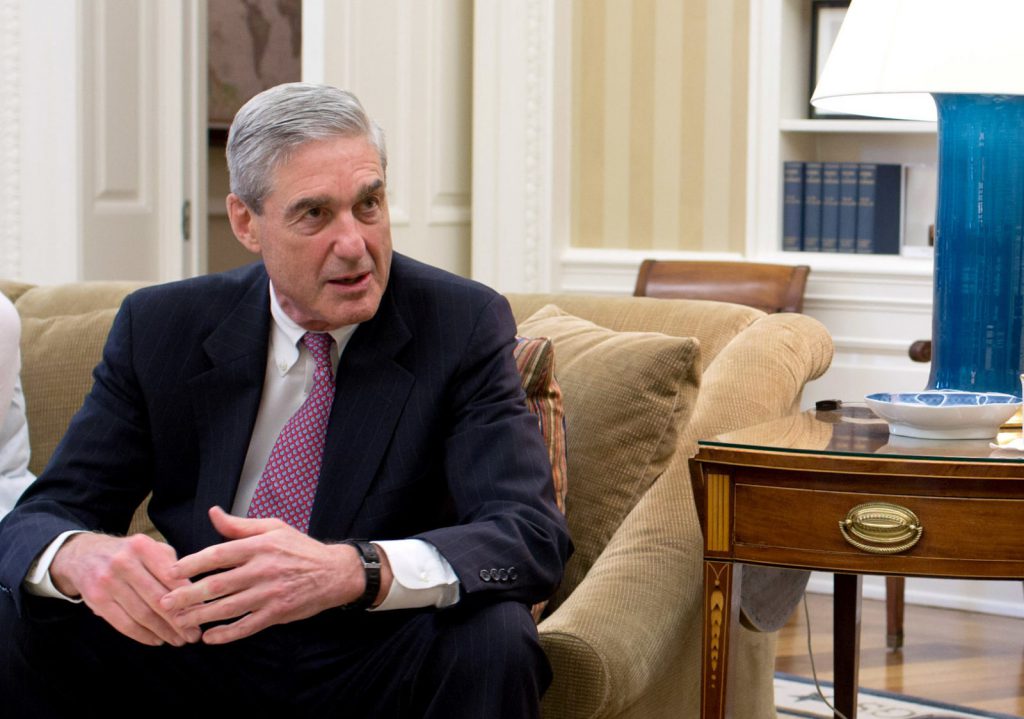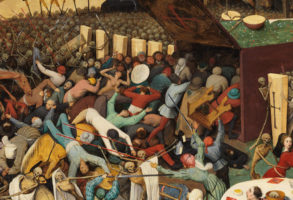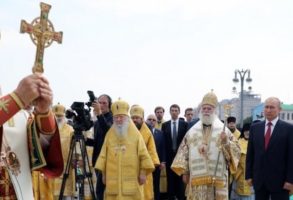
Published February 22, 2018
When absorbing news about the Mueller investigation, I can’t help thinking of Saddam Hussein. No, I’m not equating our president with the late Iraqi dictator. I’m thinking more about our assumptions regarding Saddam’s guilt. In the run-up to the Iraq war, the whole world was asking whether Hussein had a secret WMD program. The head of our CIA said it was a “slam dunk.” Our allies’ intelligence agencies agreed. There were good reasons to think it was true.
Hussein had used chemical weapons against the Kurds. He had threatened to “burn half of Israel.” He had used nerve gas against Iran in the Iran–Iraq war. Following the first Gulf War in 1991, the coalition was surprised to find Iraq’s nuclear program quite advanced. Throughout the decade of the 1990s, Saddam thwarted and harassed international weapons inspectors. In 1998, signing the Iraq Liberation Act, President Bill Clinton cited Hussein’s long cat-and-mouse game with international inspectors and declared, “It is obvious that there is an attempt here . . . to protect whatever remains of his capacity to produce weapons of mass destruction” and “the missiles to deliver them.”
But, as we later learned, it was mostly a bluff. During interrogations in 2004, Saddam told the FBI that he had encouraged the world to believe he had WMDs so as to deter Iran. This isn’t to say that Saddam’s strategy was smart — he invited a U.S. invasion that could have been avoided if he had come clean — but it was a strategy. He was acting guilty for a reason other than being guilty.
Which brings us to President Trump. He sure acts guilty. Let us count some of the ways. He chose Paul Manafort, well known for shady Russia ties, as campaign manager. He picked Carter Page, a wannabe Russian agent, as a campaign foreign-policy adviser. Donald Trump Jr., Jared Kushner, and Manafort met with a Kremlin-linked Russian lawyer. The president reportedly dictated a false statement about the meeting when it became public. With the Trump campaign’s approval, Page traveled to Moscow in July 2016. Wikileaks was in touch with Trump Jr. After Michael Flynn, who had failed to disclose his lobbying for Russia and Turkey, was fired for lying to the vice president, Trump asked James Comey to go easy on him. The fact that Flynn lied to the FBI is odd. Why lie? It’s routine for incoming administration officials to have contact with other governments.
Jared Kushner attempted to set up a back channel to communicate with Russia through the Russian embassy. Trump told the Russian ambassador in an Oval Office meeting that he had fired Comey, thereby “relieving great pressure” regarding Russia. Trump resisted sanctions on Russia and, after they passed by veto-proof margins, failed to implement them. Trump suggested, after meeting the Russian leader, that the U.S. and Russia should set up a joint cyber-security effort (causing security experts to spit out their coffee.) He repeatedly said he believed Putin’s denials of election meddling and fretted that he was insulting Putin by asking.
He has obsessed about the Mueller investigation and taken every opportunity to impugn it. He reportedly ordered that Mueller be fired at one point. He colluded with Representative Devin Nunes, talk radio, Fox News, and other sycophants to discredit the FBI.
Among the president’s nearly 100 tweets about Vladimir Putin, hardly any have breathed a word of criticism about the malign figure who daily attempts to sow discord in our country. Often painfully obsequious, Trump has indulged the idea that Putin’s hostility was to Obama personally. “Putin hates us,” he told CNN in 2015, then thought better of it and added, “He hates Obama. He doesn’t hate us. I think he’d like me. I’d get along great with him, I think. If you want to know the truth.” There is always a suspicion with Trump that he cannot see beyond the end of his own nose. But I digress.
Trump publicly humiliated his attorney general for recusing himself from the Russia investigation — as if Sessions were his personal lawyer, but moreover, as if he has something to hide from an investigation into Russian meddling in our election. And there’s more.
Does this add up to collusion with Russia to hack the DNC or otherwise affect the presidential election? Not by itself, no. It seems perfectly plausible to me that Trump was cultivating his Russia ties during the presidential race because he believed he would lose. He would then monetize this goodwill with business deals (to supplement the large share he already had, his persistent denials notwithstanding). But since holding office, some of his policies — including arming Ukraine and admitting Montenegro to NATO — have been objectively anti-Russian, not the actions of a Manchurian candidate.
He acts guilty in so many ways. He lacked the judgment to keep his distance from dodgy characters like Manafort, Page, and Roger Stone. But, recalling Saddam, I’m open to the idea (not convinced, but open), that he isn’t as guilty as he seems.
Mona Charen is a senior fellow at the Ethics and Public Policy Center.




